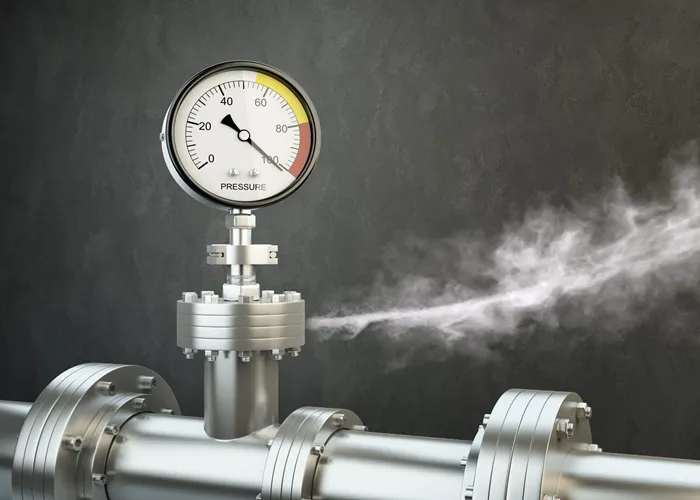Gas leaks pose significant risks to both safety and health. They can lead to fires, explosions, and exposure to harmful gases. Recognizing the common causes of gas leaks is essential for prevention and ensuring a safe living environment. This guide explores the primary factors that contribute to gas leaks and offers insights into how they can be prevented.
1. Faulty Appliances and Installation
Improper Installation: Gas appliances that are not installed correctly can develop leaks. Issues such as poorly fitted connections or the use of inappropriate materials can compromise the system’s integrity. For example, using inadequate sealants or failing to tighten connections properly can lead to gas escaping.
Malfunctioning Appliances: Over time, gas-powered appliances like stoves, water heaters, or boilers can wear out. Faulty components such as damaged seals, valves, or vents can cause gas to leak. Regular maintenance is crucial to identify and address these issues before they become hazardous.
2. Deteriorating Gas Lines and Pipes
Corrosion: Gas lines, especially those exposed to moisture or corrosive elements, can rust over time. This corrosion weakens the pipes, leading to holes or gaps through which gas can escape. Regular inspections can help detect early signs of corrosion and prevent potential leaks.
Physical Damage: Activities like construction, gardening, or accidental impacts can damage gas lines, causing leaks. It’s essential to be aware of the locations of gas pipes on your property and exercise caution during such activities.
3. Incorrect Handling of Gas Appliances
Misuse: Using gas appliances for purposes other than their intended function can lead to leaks. For example, using an oven for heating or moving appliances without properly disconnecting them can cause damage to connections and seals. Always follow the manufacturer’s guidelines for proper use.
4. Lack of Regular Maintenance
Neglect: Over time, gas appliances and systems can develop issues such as loose fittings, worn seals, or blocked burners. Without regular maintenance, these issues can go unnoticed, increasing the risk of leaks. Routine inspections by qualified professionals can identify and address potential problems before they pose significant risks.
5. External Interference and Accidental Damage
Construction and Landscaping: Digging, drilling, or other ground activities can accidentally damage underground gas lines, leading to leaks. It’s crucial to know the exact locations of gas pipes before undertaking such projects. Utilizing services that mark underground utilities can prevent accidental hits.
6. High Gas Pressure
Pressure Issues: Gas systems are designed to operate within specific pressure ranges. Excessive pressure can stress pipes, joints, and appliances, leading to leaks. Regular checks and adjustments by certified professionals ensure that gas pressure remains within safe operating limits.
7. Natural Shifts in the Ground
Seismic Activity: Earthquakes or significant ground movements can damage underground gas lines. Even minor shifts can cause cracks or breaks, resulting in leaks. In seismically active areas, it’s essential to have flexible connections and conduct regular inspections to ensure the integrity of gas lines.
8. Absence of Gas Leak Detection Systems
Lack of Detectors: Without gas detectors, leaks can go unnoticed until they cause significant harm. Installing gas detectors in key areas, such as kitchens and near gas appliances, provides early warnings and allows for prompt action. Regular testing and maintenance of these detectors are vital to ensure their functionality.
Prevention and Safety Measures
To minimize the risk of gas leaks:
Professional Installation: Ensure all gas appliances are installed by licensed professionals following manufacturer guidelines and local codes.
Regular Maintenance: Schedule annual inspections for all gas appliances and systems to identify and address potential issues.
Proper Handling: Use gas appliances only for their intended purposes and follow all safety instructions.
Awareness: Be cautious of activities that could damage gas lines, such as construction or landscaping.
Installation of Detectors: Equip your home with gas leak detectors and test them monthly to ensure they are operational.
Recognizing Signs of a Gas Leak
Be vigilant for signs of gas leaks, including:
Smell: A distinctive odor resembling rotten eggs, added to natural gas for easy detection.
Sound: Hissing noises near gas lines or appliances.
Sight: Visible damage to gas connections or appliances.
If you suspect a gas leak:
Evacuate: Leave the area immediately.
Avoid Ignition Sources: Do not use electrical devices, light switches, or open flames near the suspected leak.
Contact Authorities: From a safe location, call your gas utility provider or emergency services to report the leak.
Conclusion
Understanding the causes of gas leaks is essential for maintaining a safe environment. Regular maintenance, professional installations, and awareness of potential risks can significantly reduce the likelihood of leaks. Always prioritize safety by staying informed and proactive about gas system maintenance and recognizing the signs of potential leaks.
Related Topics:

